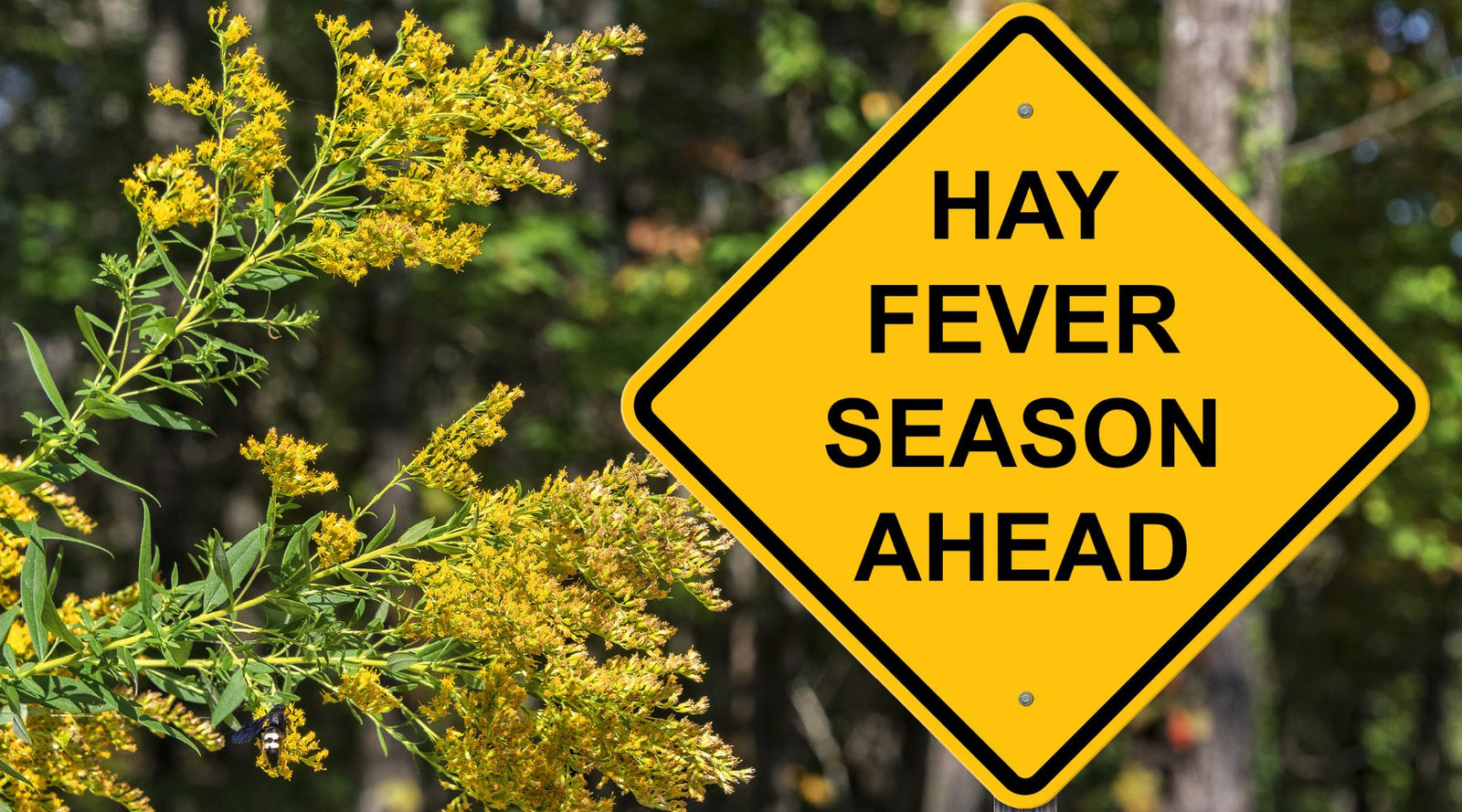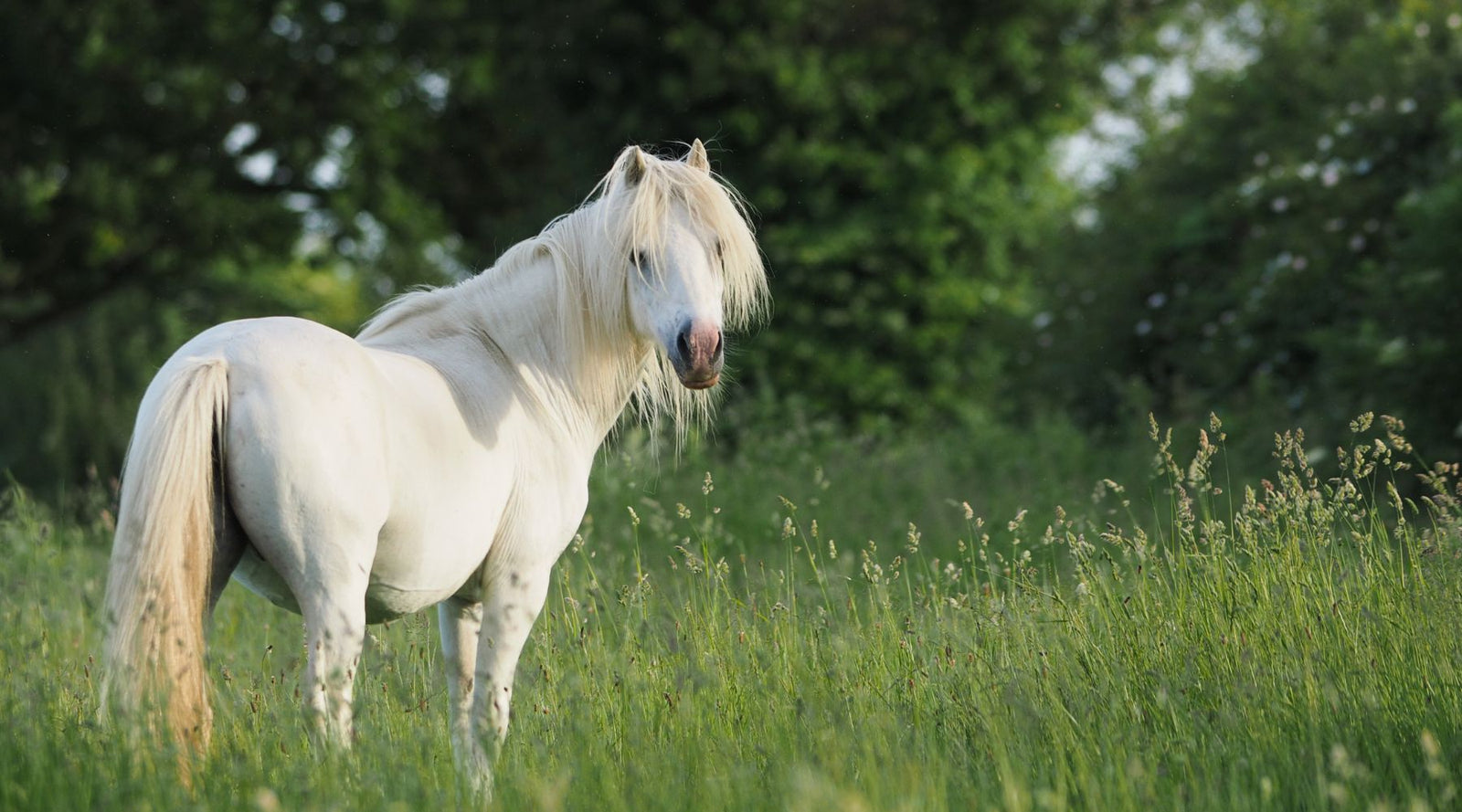Horse & Rider
Seasonal Allergies: Causes, Symptoms & Natural Support
by Fiona Lane July 23, 2025

If you find yourself sneezing, rubbing your eyes, or nursing an itchy throat every time the seasons change, you’re not alone. Seasonal allergies, often referred to as hay fever, can be triggered by anything from pollen and dust to pet dander. These reactions can affect how you sleep, focus, and enjoy time outdoors. Fortunately, there are natural ways to help manage the symptoms and support your immune system.
Key Highlights
- Pollen, grasses, dust mites, and pet dander are common allergy triggers, especially in spring and summer.
- Hay fever symptoms include itchy eyes and throat, sneezing, coughing, hives, headaches and fatigue.
- Hay fever symptoms can appear as early as July, especially for those that live near pine forests.
- Dust allergies tend to persist all year, unlike seasonal pollen allergies.
- Allergies to cats, dogs and other animals are caused by proteins in saliva and dander, which can easily become airborne.
- Hippo Health offers natural remedies to help support seasonal allergies without causing drowsiness.
Pollen & Grass Allergies: The Classic Hay Fever
Any condition caused by pollens, grasses, flowers, privet or house dust falls under the catchall of hay fever. The time of year is usually a good indication as to what your immune system is reacting to, and hay fever caused by pine pollen can start well before spring even arrives, with the pollen release in New Zealand often taking place in July. If you experience symptoms all year round, your issue may be with dust rather than pollen.
Common Symptoms of Hay Fever
- Itchy, watery, or red eyes
- Sneezing and coughing
- Scratchy throat, itchy nose
- Headaches, tiredness, and irritability
- Skin reactions like hives or general irritation
Minimising Hay Fever Symptoms
Staying indoors when the pollen count is high and removing any plants you know to be irritants from your property (ie. privet) are good places to start. Daily antihistamines are a common go-to, but for those wanting a more natural option, our Hay Fever Plus remedy provides natural support without the drowsiness, making it safe for long-term daily use.
Dust Allergies – The Year-Round Aggravator
If you experience hay fever-like symptoms all year round, you may be dealing with a dust allergy. Household dust is more than just fluff—it can contain pollen, pet hair, mould spores, insect droppings, and dust mites. These allergens can become airborne and affect the skin and respiratory system.
Dust Allergy Symptoms
Similar to pollen allergies but with year-round occurrence:
- Itchy eyes, nose, and throat
- Sneezing, wheezing, and coughing
- Hives or irritated skin
- General fatigue and irritability
Managing a Dust Allergy
A good vacuum cleaner and ventilation system can help, as can opening windows and letting air flow through as often as you can. You could also investigate wrapping mattresses and pillows and using low-allergen bedding. Taking a daily antihistamine is a common management technique; however, if you prefer to take a more natural option long-term, try our Dust Allergy remedy for people. It supports desensitisation and can help to manage acute symptoms when they arise.
Being Allergic to Animals
When cats and dogs shed their fur, that fur is usually covered in saliva that contains a protein which can trigger the immune system of some humans. Shed fur sticks easily to fabrics, furnishings and clothing. It’s also very light, so can easily become airborne where it can be inhaled. Dander from animals – particularly dogs – can also become airborne, triggering an allergic response.
Common Symptoms of Allergy to Animals
- Sneezing, itchy or watery eyes
- Coughing, wheezing, or congestion
- Skin irritation or flare-ups
- Symptoms can be more intense for asthma sufferers
- Allergies to cats are more common than allergies to dogs
Managing an Allergy to Animals
Keeping pets out of bedrooms and main living areas can help the allergy sufferer, but isn’t always practical for the pet or the rest of the family. Vacuuming and good ventilation are key. Regularly grooming your pet or wiping them down daily with a damp microfibre cloth can also help to remove loose fur and dander.
Some cat breeds are said to be more ‘allergy-friendly’; however, as a rule, there’s no such thing as a hypoallergenic cat. However, some dog breeds do shed less and produce less dander.
We have several professionally formulated remedies that are safe for people of all ages and can help reduce allergic reactions to animals:
- Cat Allergy Plus can be used as a preventative or to manage an acute attack of symptoms.
- Allergy to Dogs Plus for allergic reactions to dogs and dog dander.
- Allergy to Horses Plus for those who experience hay fever-like symptoms when exposed to horses.
Flea and Mosquito Bite Allergies
Some people have an immune system that overreacts to insect bites, causing intense itching and raised bumps (papules) or swelling.
Common Symptoms of Insect Bite Allergies
- Itchy, red papules that can appear in clusters
- Swelling, redness and discomfort
- Hives and rashes
Managing Insect Bite Allergies
The key is not to get bitten in the first place, so using insect repellents, covering up with long sleeves and trousers, and minimising mosquito breeding sites by emptying anything on your property which is collecting still water.
Our Mozzies Plus is a natural insect repellent that is taken orally, rather than applied to the skin. It can also be used topically to help reduce reactions to insect bites. Find out more about how our natural insect repellent works in this blog post.
After Effects of Alcohol
While not technically an allergy, we couldn’t resist including our groundbreaking Hangover Plus remedy! It supports an immune response to the overconsumption of alcohol and other stimulants such as coffee or tobacco, helping to relieve symptoms like nausea, headache, muscular cramps and sensitivity to noise, light and smells. Gentle, natural and a welcome friend to many!
Final Thoughts on Managing Seasonal Allergies
Seasonal and environmental allergies can be a seasonal nuisance or a year-round curse – but either way, they’re manageable. If you’re looking for gentle, effective support that is safe for people of all ages to take long-term, take a look at our range of natural remedies.
General Disclaimer: Always follow dosing instructions. Our remedies are formulated to support the natural immune system of horses, pets, livestock, and people. We do not claim to treat, medicate, or cure any health conditions. If you are worried an animal may be in pain or suffering, please contact your veterinarian.




